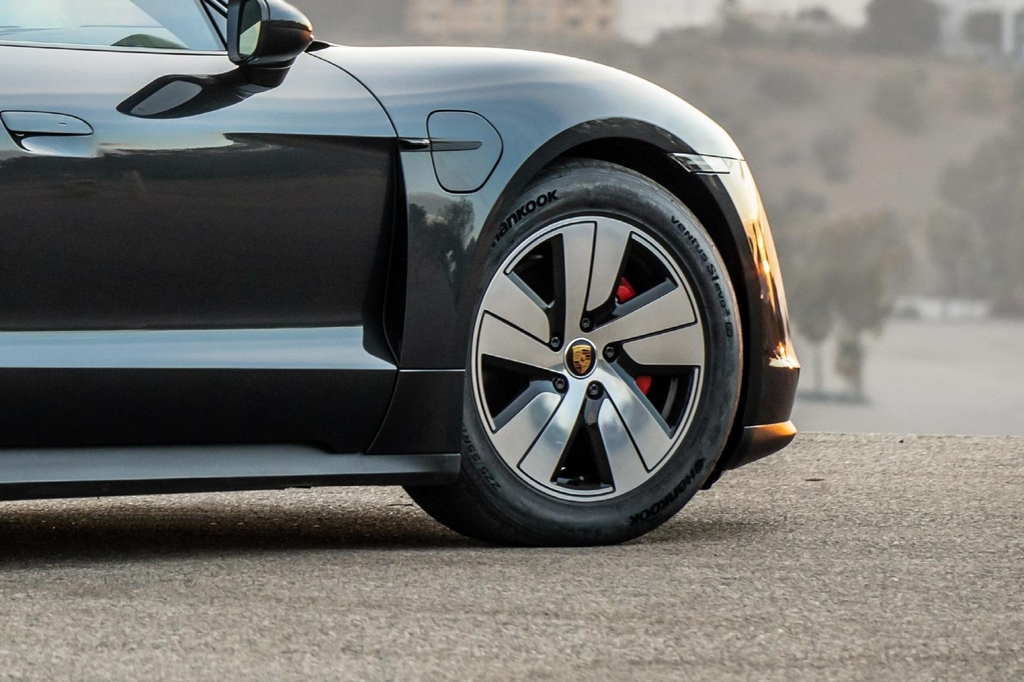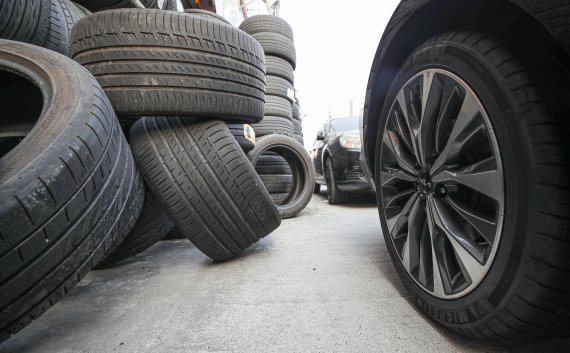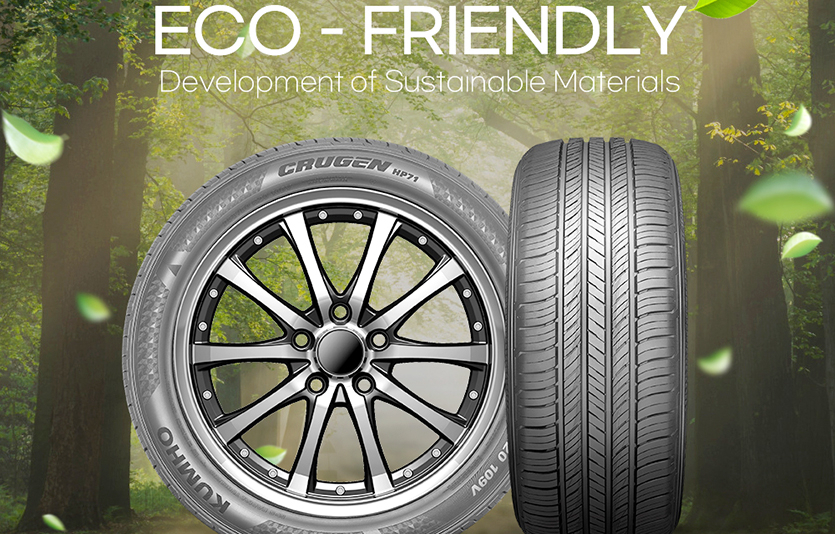[KH explains] EV tires: Profit surges, sustainability lags
Heavier weight and faster acceleration mean EVs get through tires more quickly – posing challenges and opportunities for tiremakers
By Moon Joon-hyunPublished : Jan. 16, 2024 - 14:07

South Korea's tire industry is booming, with leaders Hankook, Kumho, and Nexen posting impressive financials, thanks largely to the surging demand for electric vehicle tires. However, they face a sustainability dilemma, as the environmental impact of these tires clashes with the green ethos of EVs.
Regulatory shifts could also affect future profits.
The recent spotlight on Hankook & Company, which owns Hanbook Tire, following a failed takeover bid by MBK Partners, highlighted the sector's lucrative prospects in the EV era. Hankook Tire's operating margin doubled in the third quarter of 2023 compared to the year before, while Kumho and Nexen also reported substantial gains.
While the dominance of traditional vehicles in tire sales remains, the shift toward EVs presents both opportunities and challenges.
“EV tires are certainly profitable, at least for now, but we can't overlook their environmental impact. Hankook, a global leader, has invested early in eco-friendly technologies and enjoys a diverse customer base," said Lee Hang-koo, director of the Jeonbuk Institute of Automotive Convergence Technology, who is also an advisory board member at the Korea Tire Manufacturers Association.
"This diversity, though, brings the added challenge of meeting stringent environmental standards from international automakers while staying price-competitive.”
The unique characteristics of EVs require beefed-up tires that are high-end and lucrative for manufacturers. Genesis' GV70 electric SUV, for instance, is 350 kilograms heavier than its gasoline-powered counterpart due to the heavy battery pack, calling for tires with more durable designs. EVs also accelerate faster, requiring tires that can handle increased stress from higher torque.
Hankook Tire leads the Korean EV tire market with its iON brand, the first EV-exclusive tire lineup in the Korean market, recently expanding it to include the iON ST AS for electric SUVs. Other domestic and international players are catching up, with Kumho and Nexen introducing their EV tire ranges, targeting major EV manufacturers like Kia, Volkswagen and Tesla.
New pollution headache
Despite being designed to handle the increased weight and acceleration of EVs, EV tires still wear out more quickly than traditional tires. Typically, internal combustion vehicle tires last four to five years, but EV tires are estimated to require replacing after 3.2 to four years, assuming an annual mileage of 20,000 kilometers. This relatively more frequent replacement rate increases their environmental impact, particularly because it is difficult to recycle tires.

In South Korea discards about 30 million tires a year, with 72 percent made from petroleum-based materials, according to a Ministry of Land, Infrastructure and Transport report in 2022. Of these, 50 percent end up in landfills, causing significant soil and water contamination.
EVs also increase the production of tire and road-wear particles while driving, due to their heavy batteries. Emissions Analytics, a global firm specializing in real-world vehicle and tire emissions analysis, reports that for instance, Tesla's Model Y produces 26 percent more tire pollution than a comparable Kia hybrid, owing to the higher torque and acceleration of EVs.
To address these issues, Hankook Tire and Kumho Tire are focusing on producing eco-friendly EV tires. Their goals include increasing tire longevity and energy efficiency. Hankook Tire's iON ST AS SUV tire, with an eco-friendly compound and technology to distribute tire pressure evenly, is one recent effort.
Hankook Tire aims for 80 percent of its tires to be eco-friendly by 2030, prioritizing energy efficiency, reduced particulate emissions, and durability.
"Our progress is on track, with eco-friendly tires making up 43.95 percent of our sales in 2020, 54.43 percent in 2021, and 59.80 percent in 2022," said a Hankook Tire representative. However, the company has not detailed the criteria for these eco-friendly tires.

Kumho Tire announced last November that it had developed a tire made of 80 percent sustainable materials.
Lee of the Jeonbuk institute remains cautious about these goals.
“The challenge is balancing sustainability with cost. As tires become more durable and eco-friendly, production costs increase, but there’s a cap on what consumers are willing to pay. Tire manufacturers will continue to be under pressure to maintain competitive pricing, especially as high costs are already slowing EV sales for carmakers,” he said.
Lack of clear rules
Environmental regulations are poised to further challenge the profitability of EV tire manufacturing. A recent provisional agreement on the new Euro 7 regulations by the European Parliament and Council targets a stricter reduction in road transport emissions, as the current Euro 6 regulations in the EU don't include secondary, non-exhaust emissions or microplastics from tires or brake particles.
The proposed Euro 7 standards aim to fill this gap. Under the new proposal, brake particle emissions (PM10) for cars and vans are capped at 3 milligrams per kilometer for pure electric vehicles.
However, the implementation faces a significant hurdle: the absence of a standardized global method for measuring tire emissions. Currently, there are no official emission metrics for tires, making it difficult to gauge compliance with the Euro 7 standards.
“Tires, often relegated to the rubber industry, are crucial in vehicle performance and emissions. The intricacy of each tire's design, combined with varying driving conditions, greatly influences emissions. Accurately measuring EV tire emissions in milligrams per kilometer, as Euro 7 requires, seems to me a daunting challenge,” Lee said.




















